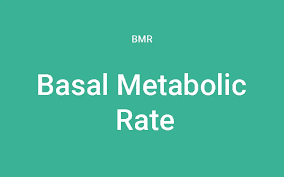Welcome to our Period Due Date Calculator and My Next Period Tracker Calculator! We’ve designed these tools to help you stay informed about your menstrual cycle. With our Period Due Date Calculator, you can predict when your next period is due with accuracy.My Next Period Tracker provides ongoing cycle monitoring and insights. Take control of your menstrual health today!
Period Calculator
Important dates for the next 6 cycles:
Period Dates | Most Probable Ovulation Days |
|---|
[ez-toc]
Menstrual cycle
The menstrual cycle is a natural process experienced by women, playing a crucial role in their reproductive health. Understanding the different phases, hormones, and factors that can affect the menstrual cycle is essential for maintaining overall well-being. In this article, we will delve into the intricacies of the menstrual cycle, providing you with the knowledge you need to take control of your reproductive health.
The Basics of the Menstrual Cycle
The menstrual cycle is a monthly process that prepares a woman's body for the possibility of pregnancy. A typical cycle lasts between 21-35 days, with an average of 28 days. It is divided into four main phases: the menstrual phase, the follicular phase, ovulation, and the luteal phase.
Phases of the Menstrual Cycle
A. Menstrual Phase (Days 1-5) The menstrual phase begins on the first day of menstruation and continues until the bleeding stops. During this time, the uterus sheds its lining, leading to menstrual bleeding.
B. Follicular Phase (Days 1-13) The follicular phase overlaps with the menstrual phase, starting on the first day of the menstrual cycle and ending at ovulation. In this phase, the pituitary gland secretes follicle-stimulating hormone (FSH), stimulating the development of several follicles in the ovaries.
C. Ovulation (Day 14) Ovulation occurs when a mature follicle ruptures and releases an egg, typically around day 14 of the menstrual cycle. This process is triggered by a surge in luteinizing hormone (LH).
D. Luteal Phase (Days 15-28) The luteal phase begins after ovulation and lasts until the start of the next menstrual cycle. The corpus luteum secretes progesterone, thickening the uterine lining to prepare for a possible pregnancy.
Hormones and the Menstrual Cycle
Several hormones play critical roles in regulating the menstrual cycle, including:
A. Estrogen: A hormone responsible for the development and maintenance of female reproductive structures and secondary sexual characteristics. It also helps regulate the menstrual cycle and thicken the uterine lining.
B. Progesterone: This hormone prepares the uterus for a potential pregnancy, supports early pregnancy, and regulates the menstrual cycle.
C. Follicle-stimulating hormone (FSH): FSH promotes the growth and maturation of ovarian follicles, ensuring the release of a mature egg during ovulation.
D. Luteinizing hormone (LH): LH triggers ovulation and stimulates the corpus luteum to produce progesterone.
Factors Affecting the Menstrual Cycle
Various factors can impact the regularity and duration of the menstrual cycle, including:
A. Stress: Chronic stress can disrupt hormone levels, leading to irregular or missed periods.
B. Weight changes: Significant weight loss or gain can alter hormone levels and affect the menstrual cycle.
C. Medical conditions: Conditions like polycystic ovary syndrome (PCOS) and endometriosis can cause irregular periods and other menstrual issues.
D. Age: Menstrual cycles tend to be irregular during puberty and before menopause, as hormone levels fluctuate.
Tips for Maintaining a Healthy Menstrual Cycle
A. Maintain a balanced diet: Eating
a well-rounded, nutritious diet can help regulate hormone levels and support a healthy menstrual cycle.
B. Exercise regularly: Engaging in moderate exercise can help balance hormones, reduce stress, and improve overall health.
C. Manage stress: Practicing stress-reduction techniques such as yoga, meditation, or mindfulness can help maintain hormonal balance and support a regular menstrual cycle.
D. Maintain a healthy weight: Aim for a healthy body weight to keep hormone levels in check and reduce the risk of menstrual irregularities.
E. Seek medical advice: Consult a healthcare professional if you experience persistent menstrual irregularities or other concerns related to your cycle.
What are the signs of your period coming?
For many women, the menstrual cycle is a natural part of life. However, the arrival of a period can sometimes be accompanied by discomfort or inconvenience. By recognizing the early signs of an impending period, you can be better prepared to manage your cycle effectively. In this SEO-friendly article, we will discuss the most common signs that indicate your period is coming, helping you take charge of your menstrual health.
Physical Signs of an Approaching Period
Several physical symptoms can indicate that your period is about to start. These may include:
A. Breast tenderness: Many women experience swelling and soreness in their breasts before their period due to hormonal fluctuations.
B. Abdominal cramps: Mild to moderate cramping in the lower abdomen is a common sign of an impending period. These cramps are caused by the uterus contracting to shed its lining.
C. Bloating: Hormonal changes can cause water retention, leading to a bloated feeling in the days leading up to your period.
D. Fatigue: Feeling unusually tired or sluggish before your period is a common symptom due to hormonal shifts and increased production of prostaglandins.
E. Headaches: Some women experience headaches or migraines before their period as a result of hormonal fluctuations.
Emotional Signs of an Approaching Period
In addition to physical symptoms, many women experience emotional changes before their period. These may include:
A. Mood swings: Fluctuating hormone levels can cause mood swings, leading to feelings of irritability, sadness, or anxiety in the days before your period.
B. Food cravings: Many women experience cravings for sweet or salty foods before their period, possibly due to changes in hormone levels or serotonin production.
C. Difficulty concentrating: Some women report difficulty focusing or concentrating in the days leading up to their period, which may be linked to hormonal changes.
Changes in Sleep Patterns
A disrupted sleep pattern is another common sign that your period is approaching. Some women experience insomnia, while others may feel excessively sleepy. These changes in sleep patterns can be attributed to hormonal fluctuations, particularly progesterone levels.
- Acne Breakouts
Hormonal changes before your period can cause an increase in oil production, leading to acne breakouts. Maintaining a consistent skincare routine and managing stress can help mitigate these breakouts.
When is my next period?
For many women, keeping track of their menstrual cycle is essential for various reasons, from birth control to planning for special events. Knowing when your next period is due can help you be better prepared and manage your menstrual health more effectively. In this SEO-friendly article, we will discuss different ways to track and predict your next period, empowering you to take control of your cycle.
Understanding Your Menstrual Cycle
Before you can predict your next period, it's essential to understand the basics of your menstrual cycle. A typical cycle lasts between 21-35 days, with an average of 28 days, and includes four main phases: the menstrual phase, the follicular phase, ovulation, and the luteal phase. Your period starts on the first day of the menstrual phase and lasts until the beginning of the next menstrual phase.
Tracking Your Menstrual Cycle
There are several methods to track your menstrual cycle, including:
A. Calendar Method: Mark the first day of your period on a calendar and count the number of days between periods. This will give you an idea of your average cycle length, which can help you predict your next period.
B. Period-Tracking Apps: Many period-tracking apps are available for smartphones, allowing you to input your period dates and other relevant information. These apps often use algorithms to predict your next period and provide additional insights into your menstrual health.
C. Basal Body Temperature (BBT) Tracking: Monitoring your basal body temperature daily can help you identify patterns in your menstrual cycle. A slight increase in BBT typically indicates ovulation, and your period will likely start about two weeks after ovulation.
Tips for Accurate Period Prediction
A. Be consistent: Track your menstrual cycle consistently over several months to establish a reliable pattern.
B. Note irregularities: Record any unusual changes in your cycle, such as missed periods or abnormal bleeding, and consult a healthcare professional if you have concerns.
C. Consider multiple methods: Use a combination of tracking methods, such as a calendar and a period-tracking app, to increase the accuracy of your predictions.
D. Monitor your body: Pay attention to physical and emotional signs that your period is approaching, such as breast tenderness, mood swings, or changes in sleep patterns.
Predicting your next period is essential for managing your menstrual health and planning your daily life. By understanding your menstrual cycle, tracking your periods consistently, and considering various factors that can affect your cycle, you can effectively anticipate and prepare for your next period. Remember to consult a healthcare professional if you have concerns about your menstrual cycle or experience persistent irregularities.
Using the period tracker to predict ovulation
For women trying to conceive or simply wanting to understand their fertility, predicting ovulation is crucial. Period tracker apps can be valuable tools for estimating when you are most fertile, helping you maximize your chances of conception or practice natural birth control methods. In this SEO-friendly article, we will explore how to use period trackers to predict ovulation and the benefits of tracking your fertility.
Understanding Ovulation and Fertility
Ovulation is the process during which a mature egg is released from the ovary, typically occurring around the middle of a woman's menstrual cycle. The days surrounding ovulation, known as the fertile window, represent the period when a woman has the highest chance of conceiving. Accurately predicting ovulation is essential for optimizing fertility.
Period Tracker Apps and Ovulation Prediction
Many period tracker apps are designed to help women monitor their menstrual cycle and predict ovulation. These apps typically use algorithms based on your cycle length and other relevant information to estimate your fertile window. To use a period tracker app effectively:
A. Input accurate data: Record the first day of your period and its duration, along with any other relevant information requested by the app, such as basal body temperature or cervical mucus consistency.
B. Track consistently: Consistently input data each month to improve the app's accuracy in predicting your ovulation and fertile window.
C. Monitor your body: Pay attention to physical signs of ovulation, such as changes in cervical mucus or mild cramping, and input these observations into the app when possible.
Additional Methods for Predicting Ovulation
To increase the accuracy of ovulation prediction, consider using additional methods alongside your period tracker app:
A. Basal Body Temperature (BBT) Tracking: Monitoring your BBT daily can help identify a slight temperature increase, which typically indicates ovulation has occurred.
B. Ovulation Predictor Kits (OPKs): These kits measure luteinizing hormone (LH) levels in your urine, which surge approximately 24-48 hours before ovulation.
C. Cervical Mucus Monitoring: Observing changes in cervical mucus consistency can provide valuable insights into your fertility. Fertile cervical mucus tends to be clear, slippery, and stretchy, resembling egg whites.
Benefits of Tracking Your Fertility
Using period tracker apps and other ovulation prediction methods can offer various benefits, such as:
A. Maximizing chances of conception: Accurately predicting your fertile window can help you time intercourse or insemination to optimize your chances of conceiving.
B. Natural birth control: For those practicing fertility awareness-based methods, tracking ovulation can help identify when to avoid unprotected intercourse to prevent pregnancy.
C. Better understanding of your body: Monitoring your menstrual cycle and fertility can provide valuable insights into your reproductive health and help you identify any potential issues early on.
Period tracker apps can be powerful tools for predicting ovulation and managing your fertility. By consistently inputting accurate data and combining the app with additional ovulation prediction methods, you can optimize your chances of conception or practice natural birth control effectively. Tracking your fertility not only empowers you to take control of your reproductive health but also helps you develop a better understanding of your body.
Why is my period late?
A late period can be a cause for concern or confusion, especially if your menstrual cycle is typically regular. While pregnancy is often the first thought that comes to mind, various factors can contribute to a delayed or missed period. In this SEO-friendly article, we will explore the most common reasons for a late period and provide guidance on when to consult a healthcare professional.
Pregnancy
Pregnancy is the most obvious reason for a missed or late period. If you have had unprotected intercourse and your period is late, consider taking a home pregnancy test to determine if you are pregnant. Remember that no birth control method is 100% effective, and it is possible to conceive even if you are using contraception.
Stress
Chronic stress can disrupt your menstrual cycle by affecting the hormonal balance that regulates menstruation. When you are stressed, your body may produce higher levels of cortisol, which can interfere with the production of reproductive hormones and delay your period.
Weight Changes
Significant weight loss or gain can affect hormone levels, leading to irregular or missed periods. Excessive weight loss can cause a decrease in estrogen production, while excessive weight gain can lead to increased estrogen and insulin levels, both of which can disrupt your menstrual cycle.
Polycystic Ovary Syndrome (PCOS)
PCOS is a common hormonal disorder that can cause irregular periods, among other symptoms. Women with PCOS often have higher levels of androgens (male hormones) and insulin, which can interfere with the menstrual cycle and ovulation.
Birth Control and Hormonal Imbalances
Hormonal birth control methods, such as the pill, patch, or intrauterine device (IUD), can sometimes cause irregular periods or missed periods. Additionally, other hormonal imbalances, such as thyroid disorders or increased prolactin levels, can disrupt your menstrual cycle.
Intense Exercise
Excessive or intense exercise can cause hormonal imbalances that affect your menstrual cycle. Female athletes, in particular, may experience a condition called athletic amenorrhea, which involves missed or irregular periods due to the physical stress of intense training.
Menopause
As women approach menopause, their menstrual cycles can become irregular due to hormonal fluctuations. If you are in your late 40s or early 50s and experiencing irregular periods, menopause could be the cause.
When to Seek Medical Advice
If your period is consistently late or irregular, it's essential to consult a healthcare professional to determine the underlying cause. Seek medical advice if:
A. You have missed three or more consecutive periods.
B. Your periods are consistently irregular or unpredictable.
C. You experience severe pain or heavy bleeding during your period.
D. You are concerned about your fertility or are struggling to conceive.
There are various reasons for a late period, ranging from pregnancy and stress to hormonal imbalances and menopause. Understanding the factors that can affect your menstrual cycle can help you take control of your reproductive health and make informed decisions. If you are concerned about consistently late or irregular periods, consult a healthcare professional for advice and potential treatment options.
![]()
Period Due Date Calculator
For many individuals, tracking their menstrual cycle is an essential part of reproductive health, family planning, and overall well-being. One valuable tool in this journey is the Period Due Date Calculator. In this article, we'll explore what this calculator is, how it works, and how it can help you stay informed and in control of your menstrual cycle.
Understanding the Period Due Date Calculator:
The Period Due Date Calculator is a digital tool designed to predict the expected start date of your next menstrual period. It relies on various inputs, including the first day of your last menstrual period (LMP) and the average length of your menstrual cycle.
How Does It Work?
Using the Period Due Date Calculator is straightforward:
Input LMP Date: Start by entering the date of your last menstrual period into the calculator. This serves as the starting point for predicting your next period.
Cycle Length: Next, provide information about the average length of your menstrual cycle. This is typically the number of days from the first day of one period to the first day of the next.
Calculate: Click the "Calculate" button, and the calculator will determine your estimated due date for your next period.
Why Use the Period Due Date Calculator?
Family Planning: Whether you're trying to conceive or want to avoid pregnancy, knowing your period's due date can help you plan accordingly.
Health Monitoring: Tracking your menstrual cycle can be beneficial for identifying irregularities or potential health concerns, such as irregular periods or changes in flow.
Symptom Management: If you experience premenstrual symptoms (PMS), the calculator can help you anticipate when your symptoms may occur, allowing for better symptom management.
Travel and Events: Planning vacations, special occasions, or physical activities can be more convenient when you have a clear idea of when your period is expected.
Peace of Mind: The calculator provides predictability, helping reduce anxiety and stress associated with uncertainty about your menstrual cycle.
Factors to Keep in Mind:
While the Period Due Date Calculator is a helpful tool, it's essential to remember that menstrual cycles can vary from person to person and may not always follow a precise pattern. Stress, illness, lifestyle changes, and other factors can influence your menstrual cycle.
In Conclusion:
The Period Due Date Calculator is a valuable resource for anyone looking to gain better control over their menstrual cycle. Whether you're planning for pregnancy, managing your health, or simply staying prepared for life's events, this calculator can be your trusted ally in understanding and managing your menstrual cycle. Remember that it provides estimates, so staying in tune with your body and consulting a healthcare professional for any concerns are equally important steps in maintaining your reproductive health.
FAQ
What is a typical menstrual cycle?
A typical menstrual cycle lasts between 21-35 days, with an average of 28 days. The cycle consists of four main phases: the menstrual phase, the follicular phase, ovulation, and the luteal phase. A period, or menstrual bleeding, occurs during the menstrual phase and usually lasts between 3-7 days.
Why do periods occur?
Periods occur as part of the menstrual cycle, which prepares a woman's body for potential pregnancy. If an egg is not fertilized by sperm, the uterine lining, or endometrium, is shed through the vagina, resulting in menstrual bleeding.
What causes period pain or cramps?
Menstrual cramps, or dysmenorrhea, are caused by the uterus contracting to shed its lining. Prostaglandins, hormone-like substances involved in inflammation and pain, trigger these contractions and can cause cramping and discomfort.
Is it normal to have an irregular period?
Irregular periods are common, particularly during puberty and pre-menopause. However, consistently irregular periods may indicate an underlying issue, such as a hormonal imbalance, stress, or a medical condition like polycystic ovary syndrome (PCOS).
Can I get pregnant during my period?
While the chances of getting pregnant during your period are lower, it is still possible, particularly if you have a short menstrual cycle or irregular periods. Sperm can survive inside a woman's body for up to five days, meaning that if you have unprotected intercourse during your period, sperm may still be present when you ovulate.
How can I manage period pain?
Several strategies can help alleviate period pain, including:
A. Over-the-counter pain relievers, such as ibuprofen or naproxen.
B. Applying heat, such as a heating pad or hot water bottle, to your lower abdomen.
C. Gentle exercise, such as walking or yoga.
D. Taking a warm bath or shower.
E. Practicing relaxation techniques, such as deep breathing or meditation.
When should I see a doctor about my period?
Consult a healthcare professional if you experience any of the following:
A. Consistently missed or irregular periods.
B. Severe pain or unusually heavy bleeding during your period.
C. Signs of an infection, such as fever, chills, or foul-smelling vaginal discharge.
D. Concerns about your fertility or difficulty conceiving.





